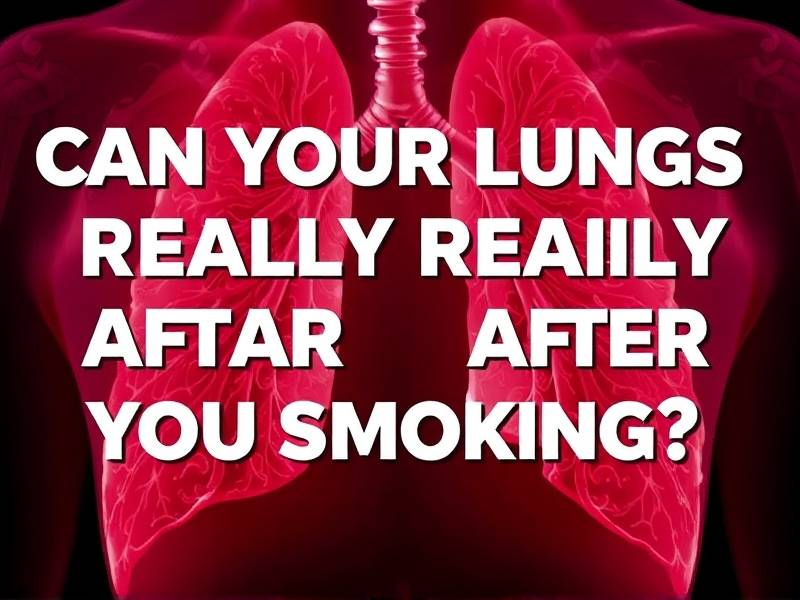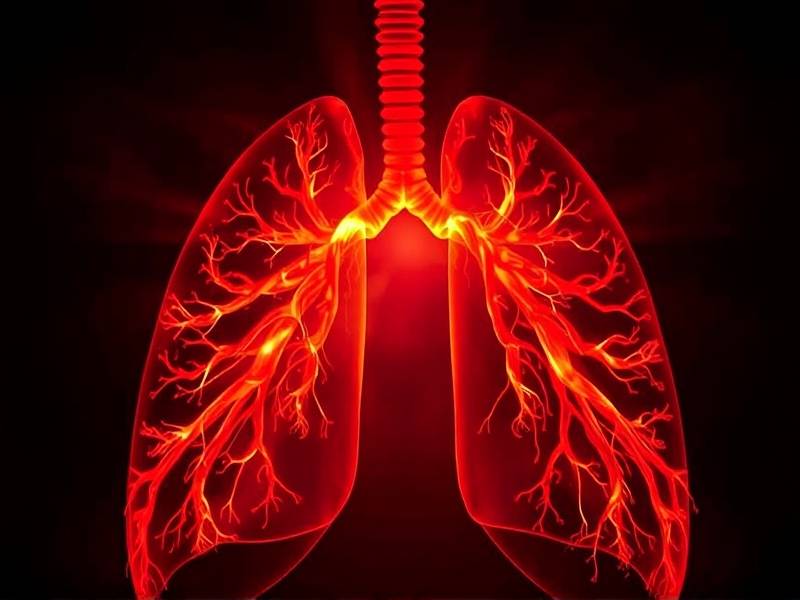Can Your Lungs Really Repair After You Quit Smoking?
The Miraculous Recovery: Can Your Lungs Heal After Quitting Smoking?
Introduction: Smoking is a deadly habit that affects not only your health but also the health of those around you. Many smokers have taken the courageous step to quit, hoping for a healthier life. But can your lungs really repair after you quit smoking? In this article, we will explore the potential healing power of your lungs and the journey towards better health.
Understanding Lung Damage:

Smoking introduces harmful chemicals into your lungs, causing inflammation, scarring, and damage to the delicate lung tissue. This damage can lead to chronic respiratory diseases such as chronic bronchitis and emphysema. However, research has shown that quitting smoking can reverse some of this damage.
The Healing Process:
After quitting smoking, your body begins to heal itself. Here's what happens:
- Reduced Inflammation: Within a few days of quitting, your lungs start to reduce inflammation caused by smoking.
- Improved Oxygen Supply: After a few weeks, your blood vessels start to relax and widen, allowing more oxygen to reach your lungs.
- Cilia Regeneration: Cilia are tiny hair-like structures in your lungs that help clear mucus and particles from the airways. Quitting smoking encourages cilia regeneration, improving lung function.
- Scarring Reduction: Over time, some of the scarring in your lungs may begin to diminish as your body repairs itself.
Long-Term Benefits:

The benefits of quitting smoking for lung health are not immediate but accumulate over time:
- Reduced Risk of Chronic Diseases: Within 5-15 years after quitting, you can significantly reduce the risk of developing chronic bronchitis and emphysema.
- Improved Quality of Life: As lung function improves, you'll notice an improvement in energy levels and overall quality of life.
- Increased Lifespan: Quitting smoking can extend your lifespan by reducing the risk of heart disease and stroke.
Supporting Your Journey:
Quitting smoking is challenging, but there are resources available to help:
- Nicotine Replacement Therapy (NRT): NRT products like patches or gum can help alleviate withdrawal symptoms.
- Behavioral Support: Joining support groups or working with a therapist can provide emotional support during your quit journey.
- Medication: Some medications have been shown to increase the chances of successfully quitting.
Conclusion: The answer to whether your lungs can truly repair after quitting smoking is yes – with time and patience, they have the potential to heal themselves from previous damage caused by smoking. Take that first step towards a healthier life by quitting today! Remember that every day without a cigarette brings you one step closer to healthier lungs and a longer life.
Note: The information provided in this article is for general knowledge purposes only and should not replace professional medical advice or treatment for any specific condition or concern you may have regarding lung health or quitting smoking. Always consult with healthcare professionals before making significant changes to your lifestyle or treatment plan.
